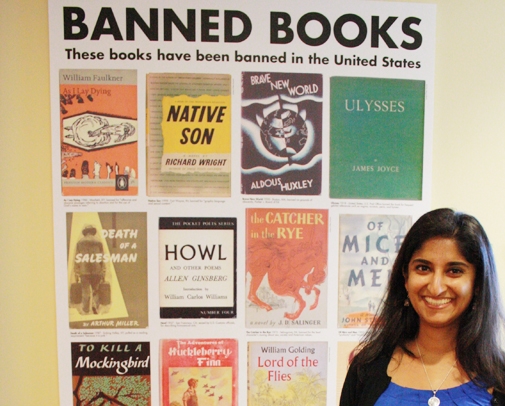Banned Books Week: Don’t Take Books Away from Students
Page Media

It’s back to school season, which means children across the country are gearing up for the new school year. While some students are excitedly stocking up on Lisa Frank folders and One Direction backpacks, others are dreading that first day of school, where they will have to suffer the indignity of being one of the only students in the whole class whose family couldn’t afford to buy them new school supplies.
Whether this school year will be an enriching learning experience for a student depends greatly on deeply entrenched inequalities in our classrooms and the entire education system.
In a state where all students are guaranteed the right to a free public education, we continue to see that the quality of education students experience varies drastically based on a number factors, including where students live, where their schools are located, how much local funding support their school receives, what the racial demographics of the student body and of the school site staff look like, among many other factors.
We live in an era where a student from one side of town is afforded a higher quality education than her peer across town, for no reason other than systemic factors beyond her personal control.
“Education is the great equalizer of the conditions of men -- the balance wheel of the social machinery,” Horace Mann famously said in 1848. Our education system is falling short of this mantra repeated time and time again, from educators to bureaucrats.
While civil rights advocates have worked for decades to guarantee equitable access to a quality education for all students, regardless of where they come from, our schools today are still grossly unequal.
Out of all 50 states and Washington D.C, California ranks 50th on spending for students, barely brushing ahead of Utah for last place.
What does that mean in real life? It means, for example, that the youth organizers we work with in Stockton don’t have the books they need for class because their district didn’t allocate the limited funding they have to purchase enough textbooks for each student in the class. How can we expect students to have a quality education if they aren’t even provided basic learning materials in school?
Given the scarce resources available for core learning, it’s astounding to think that on top of this, some groups are looking to restrict students’ access to education further by banning core literature from schools.
As recently as 2010, districts across the country have attempted to ban To Kill a Mockingbird from schools. Throughout the 1980s and 1990s, groups tried to ban Catcher in the Rye because it "centered around negative activity." Around the same time, groups tried to ban Of Mice and Men and Fahrenheit 451 for “profanity,” “racial slurs,” and “obscenity”.
These were some of my most cherished readings in high school, and for good reason – they artfully exposed students to social commentary on our racial history, the strife of being a teenager, the Great Depression, and political repression, respectively.
These novels and others give students a gateway to understanding our country’s history, our diverse experiences living that history and give valuable context for understanding the woes of our present society in a relatable way. That educational exercise is essential to building students’ critical thinking and social skills, allowing them to grow into being thoughtful and effective citizens.
Considering that California is nearly last in the country on per student spending, we need all the bright minds we can get to tackle the issue disparate educational opportunity, both in California and across the country. It is just wrong to do anything less.
Laila Fahimuddin is an Organizer with the ACLU of Northern California.
